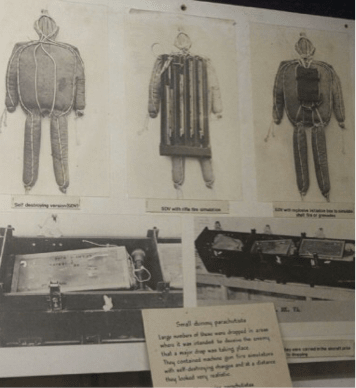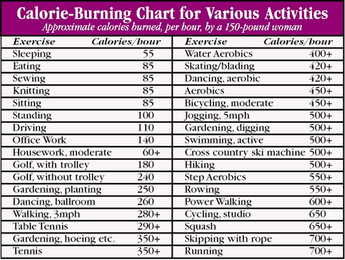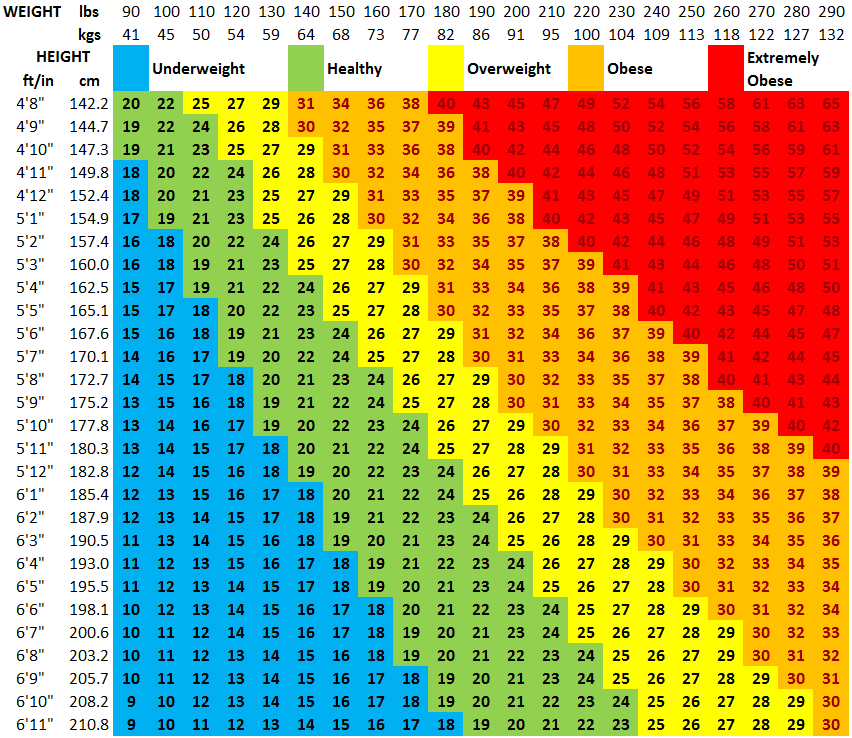|
Winter and YOU
When Autumn in the UK is just around the corner the odd grim day offers a glimpse of what is to come. Unfortunately it will rarely be a pretty as a picture scene, as in the one shown. Cold, wet and windy weather will be the order of the day. In the UK our seasons continue to shift but cold and tough weather hits us all some of the time. With limited amounts of daylight, let alone sunlight, it is all too easy to get run down and feel tired and depressed. These days though it does not have to be like that. As usual forward planning is the order of the day. It is up to you. If you look after yourself, throughout the winter months, you can emerge in Spring slim, fit and well rather than overweight, out of condition and feeling drained. A handful of ways to stay fit during Winter Your diet Our diet is as important as ever in Winter. In fact it is probably more important. With less exposure to sunlight we can all end up lacking in some vitamins. Vitamin supplements are OK but it is better by far to take in your vitamins via your diet. Fresh fruit and vegetables can be a little more expensive in Winter. However if you buy seasonal fruits and veg they should be good value for money. Remember that some frozen vegetables still offer a good source of vitamins, are easy to store, have a good shelf life and can be a cheaper option. Ensure that your winter diet does not just include stodgy, winter warming foods but that it also includes:-
Try to avoid filling up on sugary foods. Salads can still be tasty in Winter but may seem an unsuitable cold alternative. Try a warm salad instead. This way your body will receive the vital minerals and vitamins needed for good health and you will enjoy a tasty warming meal. Coughs, Colds, Chills and the Flu As if the usual winter bugs were not enough we now have the threat of Swine Flu lurking at our doors. Keep yourself as fit as possible in order to minimise the risk of developing flu and colds. Remember that good hygiene also plays a part. Wash your hands regularly throughout the day and dispose of used tissues as soon as you have used them. Sticking them in your pocket or handbag will only compound problems. Eat a good diet and consider taking a daily supplement of Echinacea. Many people swear by this as a coughs and colds preventative. Eat a vitamin C rich diet or, if this is not possible, take a supplement. Reduce or stop smoking as this habit reduces the vitamin C in your body. Do not cough and sneeze all over the place. Make sure that you cover your mouth. These days it is recommended that you sneeze into the crook of your arm rather than your hands. This is because it so easy to spread infections via your hands. Carry hand wipes for emergencies. These can be good also for wiping suspect keyboards and telephone handsets. Remember to use good hygiene practices in your place of work. Winter vomiting bugs I have seen The Winter Vomiting Bug or Noro Virus in all its glory, and trust me it is not a pretty sight. If you are fit and healthy it should not cause you lasting problems but it is not pleasant. Projectile vomiting and severe diarrhoea can leave the patient feeling drained and weak. Just what you do not want for the Holiday Season and beyond. Again good basic hygiene is essential. If you think you have contracted this illnesses stay home. It is best to avoid work and socialising for at least 48 hours. Most people will not feel up to either anyway. However, if you live with someone who has this illness and you start to feel unwell, that is vomit for example, the same applies to you. During winter we are often tucked up together sharing buses, cars, or Christmas shopping. At such times it is all too easy for these bugs to run riot. Keeping warm Keeping warm is much easier these days but not cheap. However for the elderly and vulnerable it may not be so easy. With increasingly expensive fuel bills people are often advised to turn down the thermostat. If you are elderly this is not good advice. Hypothermia is all too easy to develop in the elderly. If you are struggling with the financial cost of keeping warm check out what help is available. There are also government grants in the UK which could help insulate your home. Winter clothes are essential for your well being. If last years winter clothes are looking sad and tired try shopping around for new. If necessary check out the secondhand shops for bargains. If you chose such shops, that are located in nicer areas of town, the nearly new goods will be just that. Almost new. The Internet has some good bargains but make sure that you really need and want what you buy or else it is not a bargain. Taking care As much as you need to take care in Summer, you also need to in Winter, but of course the problems are different. Cold and foggy weather can put your safety at risk in many ways. If you are driving visibility may be poor or the roads could be slippery. If you are out and about on foot the darker mornings and evenings could mean that you are more at risk from thieves and the like. Pedestrians are also prone to slips and trips on icy pavements. The A and E departments of UK hospitals are full of people with fractures in both summer and winter. I guess this because in Summer we often take more risks and in winter there can be more hazards out there. None of this however should prevent you getting out and about. Just make sure that you are conscious of you safety and use your common sense. Sensible clothing and footwear is part of this common sense approach. Increased costs You will no doubt find that money can be a little tight during Winter. What with Christmas shopping, increased fuel bills, limited walking and some healthy foods a little more expensive it can be difficult to make ends meet. This means that it is more important than any other time of the year to budget well. Of course that is unless money is no object to you? I know. I wish! Keep basic household accounts and cuts costs when possible. Make sure that you do not cut back on essentials though as this will be false saving. In the long run you will have to spend more to put things right. SAD, seasonal affective disorder Even if you do not actually suffer from SAD it is all too easy to feel down in Winter. If you are looking after yourself then this may not happen. If it does try to:-
Your skin and hair Your skin and hair can really suffer during winter. Those cold blasts of air can make your skin dry and rough. Use products, whether you are a male or a female to help protect your skin and hair. This way you should not leave Winter, and enter Spring, looking like a cross between a wrinkled prune and Methuselah.
1 Comment
It is December 28. That period between Christmas and New Year when many of us continue to overeat. Just today UK news channels have been reporting that many people consume too many calories and not just at Christmas. A more sedentary lifestyle, car use and less physical work included, means that calorie advice should apparently be reduced.
So bear that in mind. The following is a general guide to how many calories a person should consume before today's news. Although there are general guidelines about how many calories a male or female should consume there are some variations. A lot depends on how much you already weigh and if you are overweight, if you are simply aiming to maintain your present weight, or if you want to put on or lose weight. Trying to lose weight The more extra weight that you carry, the higher the amount of calories you can consume initially, and still lose weight. If you are more than a couple of stone overweight you will probably start your diet at around 1500 to 1800 calories a day. This is for women and will give you a healthy, regular weight loss of a couple of pounds a week. A man would be more likely to be allowed 2000 to 2200 a day in the same situation. It is best to allow yourself more calories at the start of a diet as, because you have more weight to carry around, you will burn off more calories daily. However, as your weight decreases, so will your calorie intake. If you have a stone or less to lose from day one of a diet then your daily intake should be around 1,000 to 1,500 a day, if you are a female, and 1,500 to 2,000 a day if you are a male. These amounts are flexible as a lot will also depend on how old you are, how tall you are and whether your life is sedentary or active. Women should never go below 1,000 calories a day, or men below 1,500. If you lose weight with a weight loss of regular small amounts you are more likely to keep the weight off long term and also stick to your diet. A more stringent diet will be hard to maintain. Also very low calorie diets can be harmful to your health long term and you run the risk of causing yourself many health problems. Low calorie diets can also be lacking in some of the vital vitamins and nutrients that a healthy body needs to work well. Once you have reached your target weight you should be able to follow a maintenance diet. This will mean that you keep an eye on your weight and calorie intake without being too strict. Having had the struggle to lose weight you don't want to put the weight straight back on, do you? Usually a maintenance diet will be about 250 calories more than when you were dieting.
Over the following weeks and months you will be able to monitor your weight and adjust your daily calorie intake increasing the amount of calories, if and when necessary.
Trying to put weight on For all of us who struggle with keeping our weight down this one is hard to understand. However, there are people who desperately want to gain weight and just cannot seem to. A skinny friend, whose body I envied when young, used to try and put on weight eating extra rich foods. Obviously her metabolism could cope and she never gained any weight despite her best efforts. Of course, sometimes it is that, overall, a person's calorie intake may be less than their body uses each day. However, the principle is the same. Work out what would be the ideal amount of calories you should consume in a day by looking at your height, weight, levels of activity and age. There are many books which may help you work this out and there are Internet sites where you can put in your details and a calorie calculator will do the calculation for you. Whatever is your ideal amount of calories a day then needs to be increased a little. It takes about an extra 3,500 calories just to gain one pound. As you can see you will need to be patient and monitor your weight making any calorie adjustments necessary. Normal amount of calories daily The amount of calories a day which are right for you is very personal. Every person's metabolism is different. However you can increase your activity to burn off extra calories. What is usually classed as the average amount of calories just to maintain your weight is often 1,800 to 2,000 for a woman and 2,000 to 2,500 for a man. You can find an Internet calculation which is supposed to enable you to determine the correct amount of daily calories for you. It is:
These calculations, when the energy expanded during physical activity and the thermic effect of food is included, will give you your Base Metabolic Rate. Clear as mud I know. As one website says for most people these calculations are too confusing. They then give an easier formula:-
Conclusion If you follow the general guidelines, for the amount of calories which you need to consume daily, and you find that you put weight on, for example, then cut down your calories intake a little. As individuals we are all so different that there are really no hard and fast correct amounts for calorie intake a day, just what's right for you. Please remember that any unexplained weight loss or weight gain should always be investigated by a doctor just to rule out health problems, such as a Thyroid disorder. Calorie calculator http://www.nhs.uk/livewell/goodfood/pages/eat-less.aspx |
Archives
September 2021
Categories
All
|














